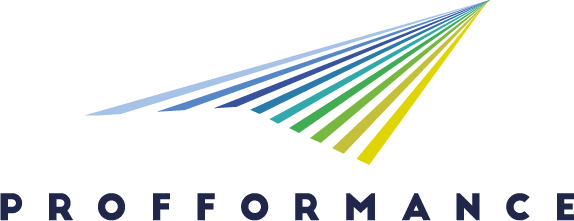TC
TeachingClinic: Meaningful Engagement Through Service-Learning
- 01 - Education
4. Impact and mission with and for society
- Research-based teaching and learning
- Extra-curricular teaching for citizens, stakeholders, students
- Service-learning and active citizenship learning for impact in society
- Active involvement of students in teaching-related research projects to improve their learning
- Teaching through real social projects addressing society’s global challenges
The TeachingClinic (TC) is a Master-level course in teacher education programs that merges service-learning, digital learning, and design-based research. In this course, practicing teachers (as external stakeholders) submit their real-world challenges and then work in close collaboration with groups of students of teacher education to find, develop, and evaluate tailor-made solutions to that challenge. Throughout the whole process, students receive digital coaching from a teacher educator and have access to a large platform of relevant, online courses and other resources. This original service-learning approach within teacher education has important implications for the involved stakeholders and beyond, as attested by a recently peer-reviewed, international journal publication about the concept (Froehlich, Hobusch, & Möslinger, 2021). Students learn in a context that is close, if not identical, to their actual future workplace, which not only increases engagement throughout the course, but also facilitates transfer of the acquired competences. The flexible, digital support system allows for a student-centric learning environment, in which students can pick their own learning goals and journeys. The practicing teachers that submit their challenges and work together with the students as external stakeholders benefit from the project in manifold ways. For example, the students deliver a service that is of explicit value to the teachers; their specific challenge is being addressed as part of the students’ workload. Furthermore, knowledge is being transferred from the academy to the individual classroom: The TC shows how state-of-the-art research can be translated into a design that has a direct impact on the teacher, the classroom, and its pupils. What is special about the TC is the benefit it delivers on the individual level, on the institutional level, and even on the societal level (national and international cooperation and exchange across borders).The TC can be a powerful component of Third Mission activities; this is especially true due to manifold multiplication effects of the delivered service. It is a learning experience not only for the students (who are becoming teachers), but also for the established teachers. Building knowledge cumulatively—and publishing it via peer-reviewed, international journals as well as via student-managed social media accounts allows the TC to reach a large population of teachers and, indirectly, thousands of pupils.
Methodology
Tools, equipment, technology used
Outcomes and outputs, main results
Lessons learnt
Adaptability and sustainability of the best practice (for other institutions)
Promotion of best practice
Scope and impact
- Course/department level
- Faculty level
- Institutional level
- Cross-institutional level
- National level
- EU/EHEA/International level
6.1 Digitalization
- Outstanding, innovative, excellent practices of online / blended / hybrid learning
- Innovative, novel methodology in using digital tools/devices in teaching
- Novel digital solutions (tools, frameworks, devices, tasks to enhance efficiency and motivation)
- Digital scientific sources used in T&L
Reasoning: 1. TC gives students access to >60 hrs. of research methods courses. Students navigate this gamified platform in a self-directed way. 2. Digital coaching is booked using an automated booking tool; digital feedback via video is given. 3. Int. guest speakers are integrated via live YouTube/facebook livestream 4. Students take over the TC social media channels. 5. Some projects also focus on digital topics (e.g., “how to teach about basic digital skills if the schools do not have any hardware”).
6.2 Internationalization
- Outstanding practices of international online collaborative learning
- Developing students' multicultural awareness
- Students engagement in international projects
- Courses implemented in international cooperation (projects, co-teaching, virtual/blended mobility, etc.)
- International projects/research results embedded into course development and T&L
Reasoning: The TC was conducted partially with partners in Spain (UAB) in a COIL format. TC output is disseminated internationally: invited talks/presentations in AT, RO, DE, ES, USA, paper publications in international journals (Frontiers of Education). International guest speakers are invited for special topics (e.g. design-based research). Many TC projects also focus on topics of culture and language (lots of TC projects in highly heterogeneous classrooms!).
6.3 Inclusion and diversity, universal design
- Inclusive course design, universally designed divers activities to meet special students' needs
- Universally designed teaching material - adjustable for special needs
- Innovative teaching methodology for inclusion and meet diverse student needs
- Alternative, flexible assessment methods for students with special needs
- Senzitivizing students to consider special needs when practicing their profession
- Course includes hints on how the services/products of the profession could be universally designed/inclusive
Reasoning: The students move through the TC in a super-individualized manner; the plenum acts only as a sounding-board/peer-support group, most of the work is done in the smaller and self-paced project teams. The facilitator gives individualized support through coaching hours, videofeedback, the large video repository (which are mostly in agreement with universal design). Dynamic, individualized assessment is used, which enhances inclusion. Many TC projects also focus on inclusion/special needs.
6.4 Sustainability
- Sustainability goals are addressed in the course(s)
- Social entrepreneurship projects, service-learning in the topic
Reasoning: The whole idea of the TC is to provide a sustainable mechanism for teacher development. The TC sensitizes becoming teachers to taking sustainable action; most of the projects do not end with the TC but further funding is requested from external funding agencies. Education for sustainable development and the UN 2030 Agenda SDGs are often in the focus of TC projects; one teacher eventually published the results of two TCs in which he participated in an impact-factored journal.
3.3 Public contact datas
| Name | Email address | Website |
|---|---|---|
| Dominik E. Froehlich | dominik.froehlich@univie.ac.at | https://teachingclinic.dominikfroehlich.com/ |

